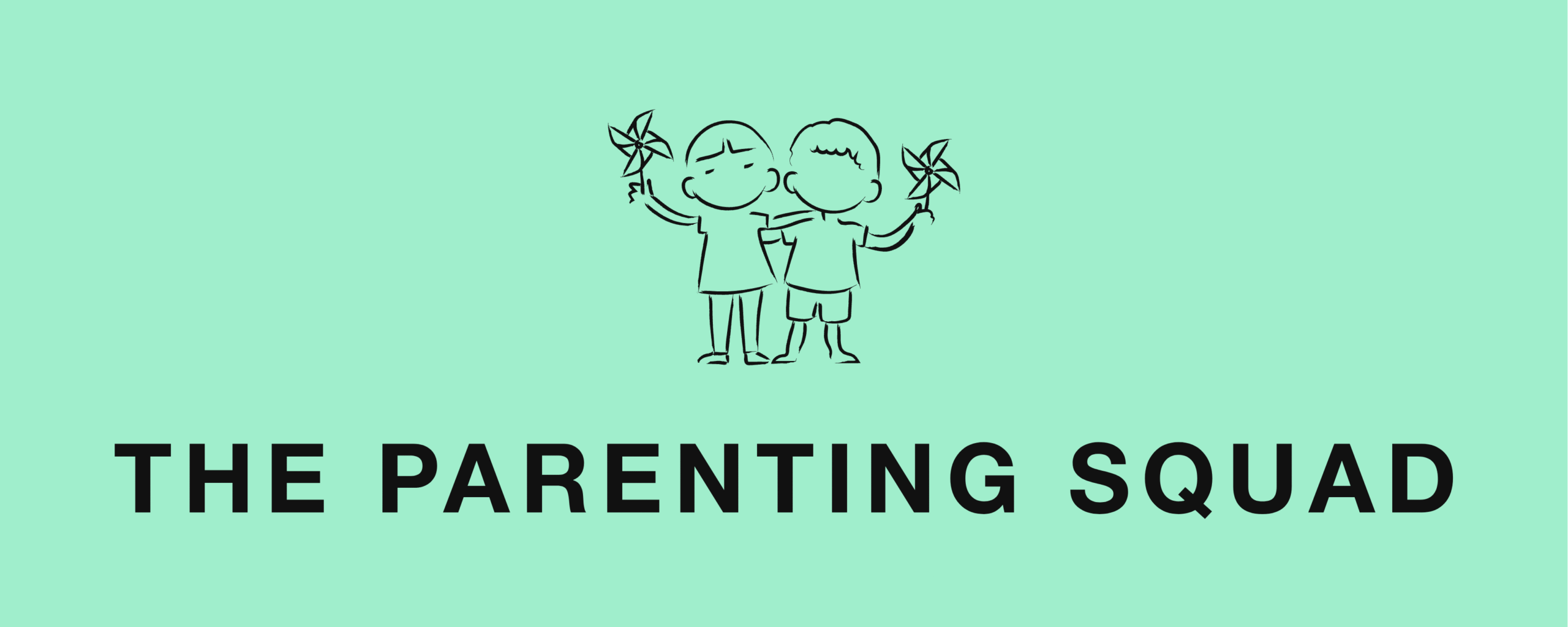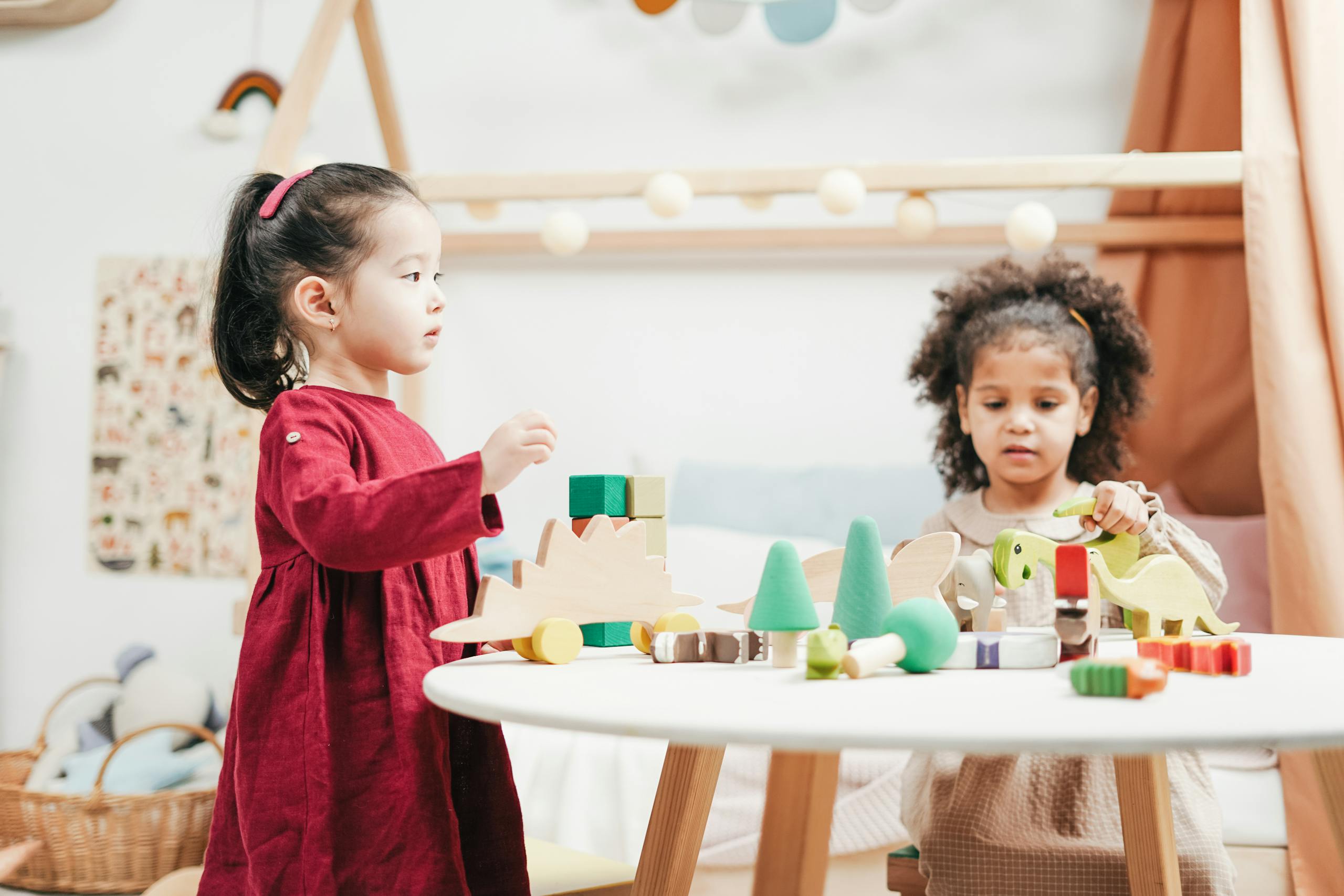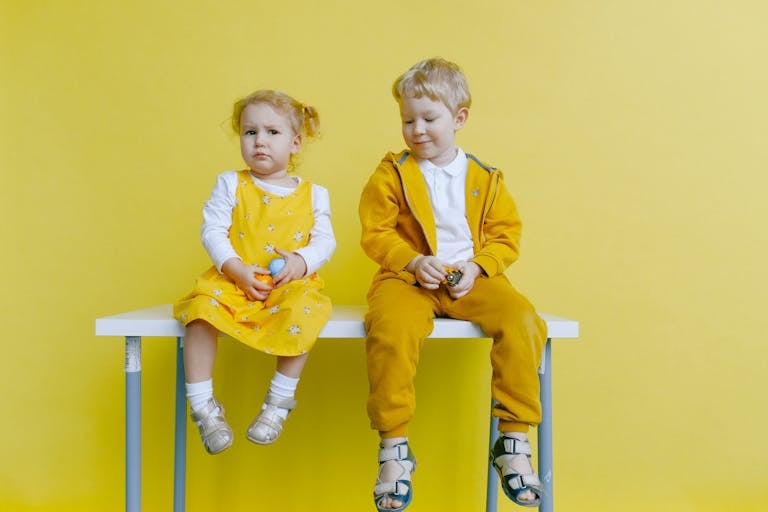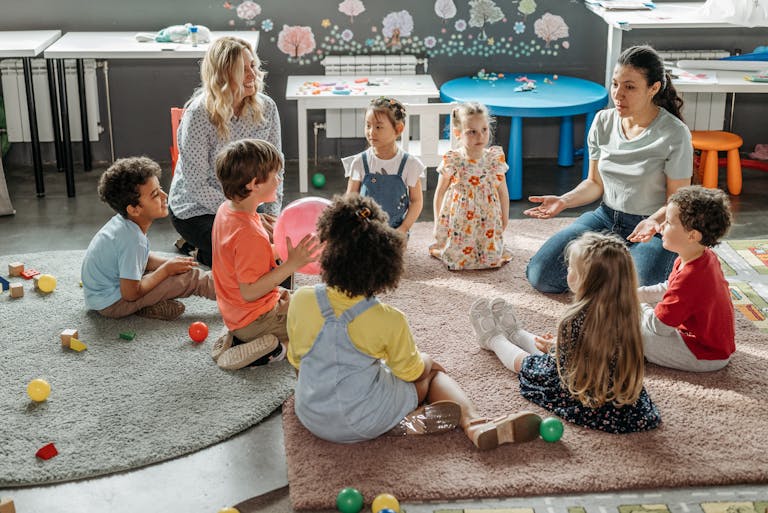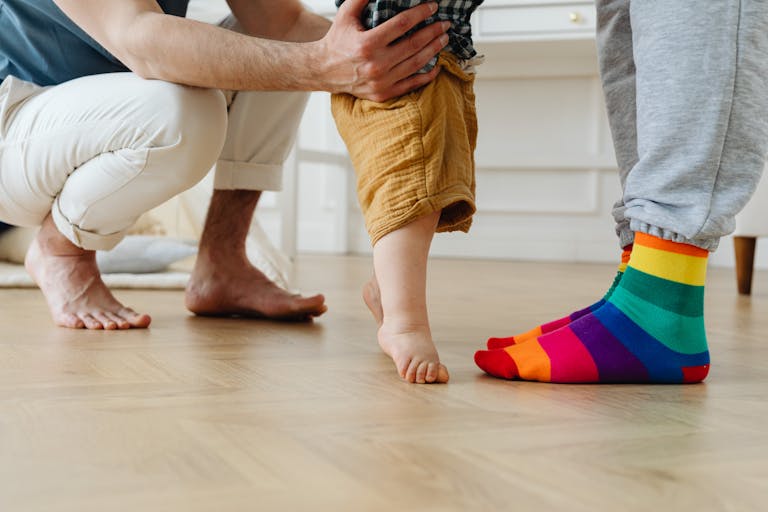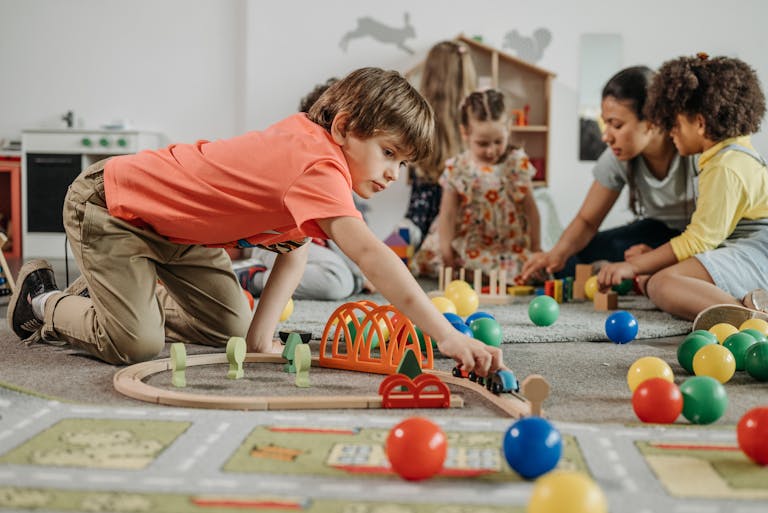9 Screen-Free Infant and Toddler Activities to Boost Brain Growth Development
Let’s be real—screens are everywhere, practically calling out to our little ones from every corner of the house. As parents, we’re constantly juggling giving our kids fun activities with the genuine concern of too much screen time. And let’s not even get started on the pressure of ensuring we’re doing everything “right” for their early brain development!
Here’s the good news: you don’t need fancy gadgets or educational apps to give your baby’s brain the boost it needs during infancy, when it’s growing and changing so fast. Some of the most powerful brain-building activities are hiding in plain sight around your home, waiting to be discovered through giggles, messy hands, and those precious “aha!” moments.
Early childhood is when your little one’s brain works overtime, forming millions of neural connections daily. The first few years are critical for rapid brain growth, laying the foundation for future learning and development. The activities you choose during these years can make a real difference in how they develop creativity, focus, problem-solving skills, and so much more. Early experiences—like play, conversation, and exploration—shape your child’s brain development and help build critical neural connections.
Ready to ditch the screens and get into some fun brain-boosting activities? We’ve rounded up nine research-backed, parent-tested ideas that’ll have your little one learning and growing—all while having a blast. The best part? Most of these require nothing more than items you already have at home and a willingness to get a little messy (let’s face it, the messiest activities are often the most memorable).
Your Child’s Developing Brain
From the moment your baby is born—and even before—an incredible process is underway inside its tiny head. The developing brain is one of the most complex and fascinating parts of the human body, and its growth during the early years sets the stage for a lifetime of learning, health, and happiness. Healthy brain development begins before birth and continues rapidly throughout childhood, with the brain forming and refining millions of neural connections daily. During these early years, your child’s brain is open to the world around them.
Every cuddle, new taste, song you sing, and loving interaction helps shape the architecture of their developing brain. Proper nutrition fuels this growth, while responsive relationships and positive influences help ensure strong, flexible neural connections. Supporting healthy brain development isn’t about doing everything perfectly; it’s about providing a nurturing environment where your child feels safe, loved, and encouraged to explore.
As parents and caregivers, you play a significant role in this process. By offering a variety of experiences from nutritious meals to playful learning opportunities, you’re helping your child’s brain grow in healthy, meaningful ways. Remember, the foundation you build in these early years will support your child’s development into adulthood.
Why is Early Brain Growth Development So Important?
Your little one’s brain is like a construction site that never sleeps. During the first three years of life, a child’s brain forms over 1,000 neural connections every second. That’s more activity than a busy coffee shop during morning rush hour!
These early years are when sensory experiences, physical movement, and social interactions create the foundation for everything your child will learn later. Every time your toddler squishes playdough between their fingers, listens to you read a story, or figures out how to stack blocks without them toppling over, their brain is rewiring to become smarter and stronger. These changes happen as neurons form, migrate, and connect, building the brain’s complex architecture.
Here’s where screen-free activities shine: they engage multiple senses simultaneously and encourage active participation rather than passive consumption. When your child explores, creates, and moves their body, they build neural pathways that support critical thinking, emotional regulation, and motor skills. These neural pathways help develop various functions, including language, memory, and problem-solving.
Activities like these stimulate different brain areas, strengthening the connections between regions responsible for learning and behavior. Through play and hands-on experience, children develop many essential skills for lifelong growth. It’s like giving their brain a full workout instead of just letting it binge-watch Netflix. Ultimately, how early experiences shape the brain during these formative years has a lasting impact on cognitive, emotional, and social development.
Toxic Stress and Early Childhood Development
While some stress is a regular part of life and can even help children learn resilience, chronic or overwhelming stress—known as toxic stress—can have a significant impact on a child’s developing brain. Toxic stress can come from ongoing situations like family instability, neglect, or exposure to violence and can disrupt the formation of healthy neural connections during critical periods of brain development.
When children are exposed to toxic stress, their brains are flooded with stress hormones that can interfere with the growth of fine motor skills, hand-eye coordination, and problem-solving abilities. Over time, this can make it harder to regulate their emotions, learn new skills, and build the strong connections needed for healthy development. The effects of toxic stress can last a lifetime, affecting not just childhood but also health and learning well into adulthood.
The good news is that parents and caregivers can make a big difference. By providing a stable, loving environment and engaging in positive, responsive interactions, you can help buffer your child from the harmful effects of toxic stress. Simple routines, comforting words, and quality time together can support your child’s healthy brain development. If you ever feel overwhelmed, don’t hesitate to reach out for support—taking care of yourself is essential to caring for your child’s developing brain.
9 Screen-Free Activities to Boost Infant & Toddler Brain Growth
1. Sensory Play with Everyday Items
Turn your kitchen into a sensory wonderland! Fill a shallow bin with uncooked rice, dried beans, or cooked pasta (cooled down). Add measuring cups, wooden spoons, and small containers for endless exploration. Sensory play provides rich stimulation that benefits brain development by strengthening neural connections.
- Encourages tactile exploration and fine motor skills
- Supports sensory processing and cognitive development
- Provides opportunities for open-ended creative play
For younger babies, try a “treasure basket” filled with safe household items like wooden spoons, fabric squares with different textures, or empty yogurt containers. The goal is to let their hands and mouths (yes, mouths—that’s how babies explore!) discover different textures, weights, and shapes.
This type of sensory play is like a gym membership for your child’s developing brain. It strengthens the neural pathways responsible for processing sensory information, supporting everything from reading readiness to emotional regulation. Sensory experiences have shaped these brain connections, especially during early development.
2. Nature Walks and Outdoor Exploration
Get outside and let Mother Nature be your child’s teacher. Even a simple walk around the block becomes an adventure when you’re seeing it through a toddler’s eyes. Encourage your little one to collect smooth rocks, crunchy leaves, or interesting sticks (supervise the stick collection, obviously). Some examples of outdoor exploration activities include searching for bugs under logs, splashing in puddles after rain, or listening to different bird calls together.
- Builds gross motor skills through walking and exploring
- Encourages observation and curiosity about the natural world
- Supports mood regulation and sensory integration
For babies who aren’t walking, carrying them outside while pointing out birds, feeling tree bark or letting them touch soft grass gives their developing senses a rich workout. Combining fresh air, natural light, and varied textures supports mood regulation and cognitive development.
Pro tip: Bring a small bag for treasures, and don’t be surprised if you end up with a collection of “special” rocks that somehow all look identical to you but are unique masterpieces to your toddler.
3. DIY Music and Rhythm Sessions
You don’t need to be musically gifted to become a rock star. Fill empty containers with rice, beans, or pasta to make shakers. Wooden spoons become drumsticks, and pots become drums (your neighbors might have opinions about this one).
- Develops auditory discrimination and listening skills
- Encourages coordination through rhythm and movement
- Supports memory, language development, and emotional expression
Sing simple songs with actions like “If You’re Happy and You Know It” or “The Wheels on the Bus”. Combining music, movement, and repetition is like brain candy for developing language skills and memory. As you play, talk to your child about the music or your actions together—discussing what you hear and do helps build their thinking and language skills.
Music activities support everything from mathematical thinking (hello, rhythm patterns) to emotional expression. There’s something magical about watching your toddler’s face light up when they realize they can make music with their two hands.
4. Build-Your-Own Obstacle Course
Create an adventure course using pillows to crawl over, tape lines to walk along, and couch cushions to navigate around. For younger toddlers, make it simple: a pillow to step over and a tunnel made from a sheet draped over chairs. Always supervise closely to ensure your child’s safety during the obstacle course.
- Enhances spatial awareness and motor planning* Encourages problem-solving and executive function skills
- Builds balance, coordination, and physical confidence
This isn’t just about burning energy (though that’s a nice bonus). Obstacle courses develop spatial awareness, problem-solving skills, and physical coordination. When toddlers figure out how to crawl under something or balance on a tape line, they build the brain connections that support executive function skills.
You can modify the course based on your child’s mood and abilities, making it as simple or challenging as needed.
5. Play-Doh Adventures
Give your toddler an empty box and watch it become a spaceship, a house, or a car. Set up a play store with empty containers and let them “shop” while you play cashier. Create a doctor’s office with stuffed animals as patients and a toy stethoscope.
- Fosters creativity and imagination
- Develops language and social skills
- Encourages understanding of different perspectives
Playdough is where creativity meets cognitive development. Children who play with Play-Doh practice abstract thinking, build language skills, and learn to understand different perspectives. It’s like a rehearsal for real-life situations, but with a lot more giggling involved.
Don’t worry about having elaborate props – sometimes the simplest materials lead to the most creative adventures.
6. DIY Puzzles
Start with simple wooden puzzles with big pieces for toddlers or chunky shape sorters for younger babies. As skills develop, complexity increases. The key is finding that sweet spot where it’s challenging but not frustrating.
- Develops problem-solving and spatial reasoning skills
- Encourages patience and persistence
- Supports fine motor development and hand-eye coordination
Puzzles are like personal training for the brain. They develop problem-solving skills, spatial reasoning, and persistence. Specifically, puzzle play helps children strengthen spatial reasoning by visualizing how pieces fit together and encourages persistence as they keep trying until they succeed. When your child tries different pieces before finding the right fit, they learn valuable lessons about patience and logical thinking.
Celebrate the process, not just the completion. Sometimes the best learning happens when they’re trying pieces that don’t quite fit yet.
7. Art Projects
Set up a simple art station with washable finger paints, large paper, and sponges or brushes. For mess-conscious parents, try painting in the bathtub or outside. Playdough is another excellent option – squishing, rolling, and shaping develop fine motor skills while encouraging creativity. Art activities help toddlers develop fine motor skills and creativity.
- Encourages self-expression and creativity
- Develops hand-eye coordination and fine motor skills
- Introduces basic concepts of colour and texture
Art isn’t about creating masterpieces (though you’ll probably want to hang everything on the fridge anyway). It’s about self-expression, hand-eye coordination, and spatial awareness. When your toddler mixes colours or discovers that pressing harder makes darker marks, they conduct little science experiments.
Don’t direct their creations too much. Sometimes the best art comes from complete freedom.
8. Storytime
Reading together is like a superpower for brain development. Choose books with engaging illustrations, different textures, or interactive elements like flaps to lift. For young babies, board books with high-contrast images capture their developing vision.
- Builds language, vocabulary, and communication skills
- Develops imagination and emotional understanding
- Strengthens bonding and responsive relationships
Don’t just read the words – make the story come alive with different voices, sound effects, and dramatic pauses. Ask questions like “Where’s the dog?” or “What comes next?” to keep little minds engaged.
Reading together builds language skills, imagination, and emotional intelligence. It also creates positive associations with books that can last a lifetime. Early reading experiences help prepare children for school by supporting readiness and future learning. Plus, those snuggled-up reading moments are pretty magical for both of you.
9. Movement and Dance
Put on some music and have a dance party! Play “freeze dance” where everyone stops moving when the music stops, or try “musical statues” where you hold silly poses. Simple movements like marching in place or swaying to gentle music work perfectly for younger children. These movement games help children develop self-regulation by encouraging them to control their impulses and responses as they start and stop with the music cues.
- Develops physical development and coordination
- Encourages emotional regulation and self-expression
- Helps develop body awareness and cross-body coordination. Movement activities aren’t just about physical development – they support emotional regulation, body awareness, and academic skills. When children cross their body’s midline (like reaching across their body with their right hand), they connect the two sides of their brain.
Create a simple playlist of songs that encourage movement and don’t worry about looking silly. Your enthusiasm is contagious – your little one will love seeing you let loose.
Easy Ideas for Screen-Free Fun
In a world filled with screens, finding activities that don’t involve a device can feel hard. But stepping away from screens can open the door to more creativity, connection, and meaningful experiences. Here are some easy and fun ways to go screen-free for family time, personal growth, or just a break from the digital world!
Parents and caregivers are encouraged to seek additional resources promoting screen-free activities and healthy development for more ideas and support.
1. Create a Sensory Station for Easy Setup
A sensory station is a simple and effective way to encourage screen-free play. Use a large plastic container with kinetic sand, water beads, or dry pasta. The key is to make it easy to set up and pack away so you can whip it out when needed. This hands-on activity engages your child’s senses and keeps them entertained with minimal effort from you.
2. Establish a Daily “Quiet Play” Routine
Introduce a specific time when screens are turned off daily so your child can get creative. Even 20-30 minutes of “quiet play” can foster creativity and independence. Whether building with blocks or drawing, this daily routine creates a calming break from screen time and encourages imaginative thinking.
3. Use Themed Days to Simplify Planning
If planning feels overwhelming, try assigning themes to each day of the week. For example, Monday could be music day, where you explore instruments or create DIY shakers. Wednesday might be art day with painting or crafting, and Friday could be physical activity day with obstacle courses. Themed days add structure and variety without requiring much prep.
4. Embrace Simple Activities That Spark Creativity
Don’t underestimate the power of simple. Activities like giving your child a cardboard box and some crayons can lead to hours of creative play. Kids often thrive with basic tools that let their imaginations run wild. Simple setups are easier for you and encourage your child to think critically and creatively.
5. Go Low-Prep When Life Gets Crazy
Life gets busy, and that’s okay. When you’re short on time or energy, go low-prep. Sticker books, puzzles, or Play-Doh are quick to set up and still super engaging for kids. Remember, your child benefits more from your calm and relaxed energy than elaborate play setups. Keep it simpl,e and everyone wins.
Your Screen-Free Adventure Begins
Building your little one’s brain power doesn’t require expensive toys, complicated schedules, or Pinterest-perfect setups. It happens through everyday moments of exploration, creativity, and connection. Early experiences can impact how your child’s brain develops and shape future learning and behaviour.
Brain growth and development start during pregnancy, so those early months are just as important. Each time you choose a screen-free activity, you give your child’s developing brain exactly what it needs to grow strong and smart.
These nine activities are just the beginning. Trust your instincts, follow your child’s lead, and remember that your presence is crucial to any brain-boosting activity. Brain development is an ongoing process that continues well beyond early childhood, with new connections forming and strengthening over time.
Many factors – including genetics, nutrition, and caregiving – shape your child’s brain growth. Some days you’ll be the parent who sets up elaborate sensory bins; other days you’ll hand over some measuring cups and call it good. Both are perfectly fine.
Ready to start your screen-free journey? Pick one activity that sounds doable for today and try it. We’d love to hear about your adventures! Share your favourite screen-free activities in the comments below, and don’t forget to join The Parenting Squad community for more practical parenting tips and support. Because raising little humans is hard work, and we’re all better when we do it together.
